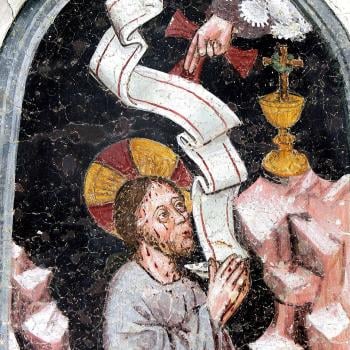Several years ago I was being interviewed by a journalist from Switzerland when the topic came to Islam in Europe. The interviewer identified herself as a fastidiously progressive and secular person, and insisted that she held nothing against Islam as a religion. Nonetheless, “when I see a mosque in Switzerland,” she confessed, “I have an overwhelming sense that something is not right about this.”
Since the horrendous in attacks in Paris, a lot has been written about radical Islam and Europe, much of it perceptive, much of it not. Correctly, attention has focused on European immigration policies, the lingering effects of colonialism, Anti-Semitism, poverty and unemployment in Muslim immigrant communities, the venomous influence of jihadist groups like ISIS and Al Qaeda, the vulnerabilities created by social media, and so on.
One thing, though, has gone missing and one that I think my Swiss interviewer was getting at in our conversation: deeper anxieties about Islam rooted in what I’ll designate as Europe’s historical memory or social memory. In contrast to individual memory or history proper, historical memory refers to the deep-seated, below-the-surface historical experiences that still linger in the present-day consciousness of a culture, about which the inhabitants might be only dimly aware, but which can be powerfully activated under certain conditions.
For students of medieval and early-modern Europe, what I’m about to trot out is common knowledge. But it bears keeping in mind that Europe’s conflicts with Islam—the reminders of which present themselves to the discerning eye—are not new but stretch back centuries.
At its height, the Ottoman Empire, the last great Islamic caliphate, reached far into central Europe, into the Balkans and up to present-day Hungary. Twice “the Turks” unsuccessfully besieged Vienna, once in 1529 and again 1683. These defeats coupled with the defeat of the Ottoman navy by Europe’s so-called “Holy League” at the Battle of Lepanto (1571) heralded the onset of the Ottoman Empire’s long decline and the problems that this created—designated as the “Eastern Question” by nineteenth-century diplomats. Incidentally, the place/subway stop in Rome right before the one closest to the Vatican is called Lepanto in memory of the naval victory of 1571.
From 711 until 1492, Islam had a robust presence in Spain and Portugal and even briefly in France. The legacy of Muslim subjection of the Iberian peninsula—or “Al-Andalus” as it is known—persisted until the Reconquista during the reign of Ferdinand and Isabella. The legacy of Al-Andalus is still richly apparent in the architecture of southern Spanish cities such as Cordoba, Seville, and Granada, the last Muslim stronghold. Some 80 towns in Spain still celebrate what is known as the Fiesta de Moros y Cristanos, in which locals—not unlike America’s doughty Civil War reenactors–dress up in elaborate traditional costumes of Christian soldiers and “Moorish” fighters and reenact the expulsion of Muslims from Spain. The Islamicists who blew up 191 Spanish commuters in Madrid in 2004 gave as one of their motivations … you guessed it: revenge for the Reconquista of 1492.
Between 827 and 1300 Islamic influence penetrated present-day Italy. Sicily once had far more mosques than churches, and incursions by Muslim pirates extended far up the peninsula. “Saracen” raiders even tried to attack Rome in 846. What is more, before and after the conquest of Constantinople (1453), the Ottomans later tried to make inroads into Italy. The Republic of Venice was involved in ten costly wars against Ottoman fleets between 1423 and 1718. Today, many Italian coastal towns still celebrate festivals marking the defeat of Muslim raiders many centuries ago.
The deeper history that I present could be fleshed out far more extensively. I offer it here not because it explains Islamicist violence in Europe today nor does it fully account for many Europeans’ lingering fears of Islam—something that is being capitalized on by far-right, anti-immigrant parties such as the National Front in France or Germany’s Alternative for Germany. Most occurrences in human experience are complex and polygenetic, resistant to catch-all explanations. Even so, without taking a longer historical view of today’s happenings, analyses of the present and ensuing policy prescriptions will remain saddled, unnecessarily, by the dead weight of historical ignorance.
(For an entry point into at least some of the above, allow me to recommend John Tolan et al., Europe and the Islamic World [Princeton University Press, 2012]. For Islam in Europe’s religious imagination, Adam S. Francisco’s fine study Martin Luther and Islam: A Study in Sixteenth-Century Polemics and Apologetics [Brill, 2007] is instructive.)
Thomas Albert Howard
Center for Faith and Inquiry, Gordon College












